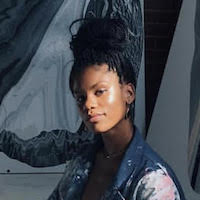![]()
Hipster racism isn’t a new term.
But the first time I heard it was last week, used in relation to “Girls” creator Lena Dunham, and yet another problematic statement she has made in the name of “feminism.”
Lena Dunham recently came to the defense of a fellow writer of “Girls,” Murray Miller, who actress Aurora Perrineau accused of raping her when she was just 17 years old.
The notion that we unequivocally believe and support victims is deeply rooted in feminism, as women do not typically lie about an experience so traumatizing as rape. Dunham quickly accused Perrineau of lying, which was not only deeply inappropriate, but downright nasty, especially in light of all the brave women who have come forward to tell their stories of sexual assault as part of the #MeToo movement.
It seems that Dunham’s feminist philosophy applies exclusively to white women and excludes women of color.
Writer Zinzi Clemmons wrote a statement in response to Dunham, urging women of colour to withdraw from her notion of feminism. In that, she used the term “hipster racism,” and something clicked for me. Those two words seemed to perfectly encapsulate many of my high school and early adult experiences.
Clemmons identifies one particular social group as the major perpetrator of this hipster racism: well-educated, progressive types like Dunham who use people of colour to appear more “woke,” or because they believe it’s trendy to have black friends. Clemmons, who has known Dunham since college, said that members of this group would often use offensive racial slurs in the name of irony.
I was the only black girl in my friend group in high school. My experience of racism came largely in the form of micro-aggressions. I have never faced police brutality, a lynching, or exclusion from study or employment opportunities (as far as I’m aware), so I’ve long wondered what to make of certain confrontations that didn’t seem “as bad.” These situations didn’t necessarily made me feel attacked or afraid; rather, I’d walk away feeling confused or uncomfortable.
An old friend of mine used to jokingly call me a nigger. We had been friends since the age of eight, in a tight-knit circle of friends that continued all the way into early adulthood. We worked together, and on more than one occasion, my manager voiced his discomfort at her use of the term. Because I hadn’t complained, my boss asked me why I was okay with him speaking to me that way. I would shrug, and offer the excuse lamely: “Because I know he’s not racist, we are like best friends.” My friend would grin at our boss defiantly—and we would remain close friends for years.
It wasn’t until our “friendship break-up” that other components of this and other friendships were revealed to me. These were friends that freely encouraged me not to share my writing. These were friends that made me feel hyper-emotional and irrational when I did speak my mind. These were friends that told one too many jokes, but told them for shock value, and to appear intelligent (which they were). These were friends who had Bachelors and Honors degrees; these were obnoxious, albeit smart, insensitive friends. These were friends that came from good families, families that made me feel welcome.
They were my friends—friends that smoked just a little bit too much weed, who I smoked weed with, who assured me that they were “colorblind.” Somehow, this statement made them feel empowered to argue their use of the word nigger, or nigga, as they sang along to rap music. Somehow, this statement made them want to argue with me about my passionate political views, to silence me, to urge me to stop discussing race, for it “didn’t exist—it’s just a construct.”
Somehow, they thought that my friendship gave them a free pass.
These were friends that tokenized and fetishized me. The dynamics of friendships made this strain of racism almost impossible to navigate. This was not just one or two friends, mind you.
I reflexively buried my feelings about these encounters for a long time; however uncomfortable I was feeling could be quickly forgotten. I tried to make myself forget. Feeling ashamed that I hadn’t spoken up wouldn’t sink in until I began replaying these scenarios in my head.
That’s when I began to really reclaim my power.
One by one, friends dropped off my radar. I grew as a writer, as a woman, a black woman. I learned respect for myself, grew angry at times, but still I sat and wrote. I entertained them with my biting back, finally unafraid of losing their approval.
I wondered how they could call me a word that I could barely even bring myself to say—yes, even in a song. How could I laugh along and accept it for so long, in the midst of my own personal discomfort? How could the Lena Dunhams of my friend group challenge my perception of myself, pick apart the colour of my skin and my heritage, and expect me to tirelessly entertain them?
I wonder how, in her world, the world holding all the other hipster racists, my experience as a black woman could be so easily discarded. Are women of colour to remain unspoken?
Hipster racism is more insidious and less obvious than we realize, but it is still racism. Although I have tried to convey this to old friends, I still face the idea that I am the one who is antagonistic, that I am the angry black woman, that I am the problem.
Yet even in the face of this, I will not remain unspoken.
~
~
Author: Kalida Edwards
Image: Author’s own
Editor: Callie Rushton
Copy Editor: Nicole Cameron
Social Editor: Yoli Ramazzina






Read 1 comment and reply